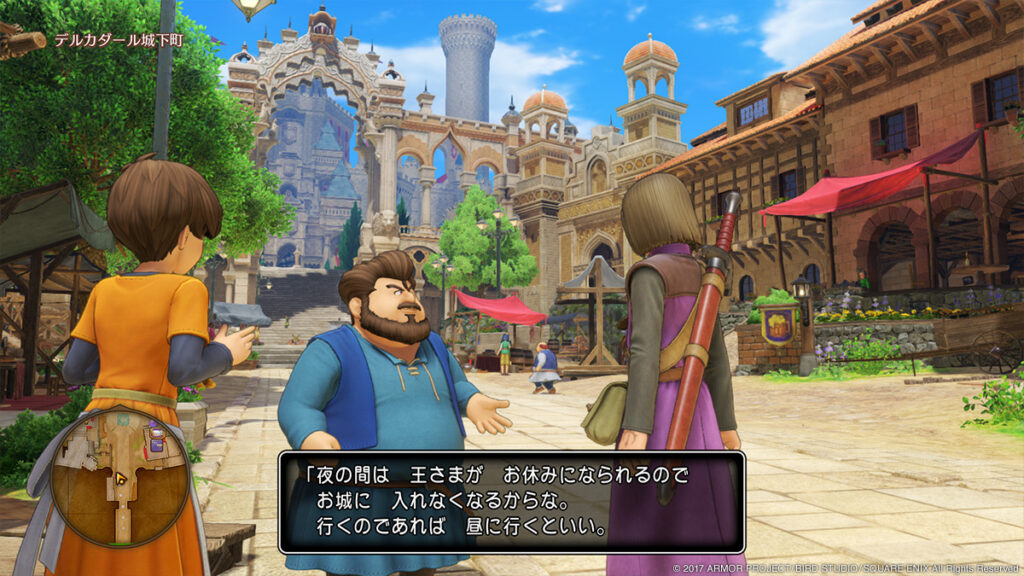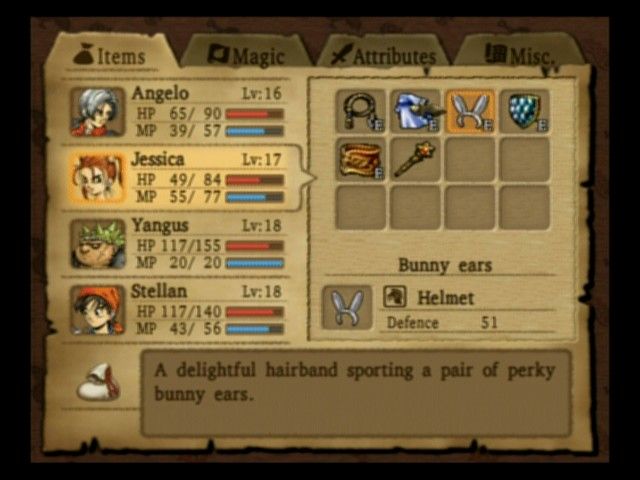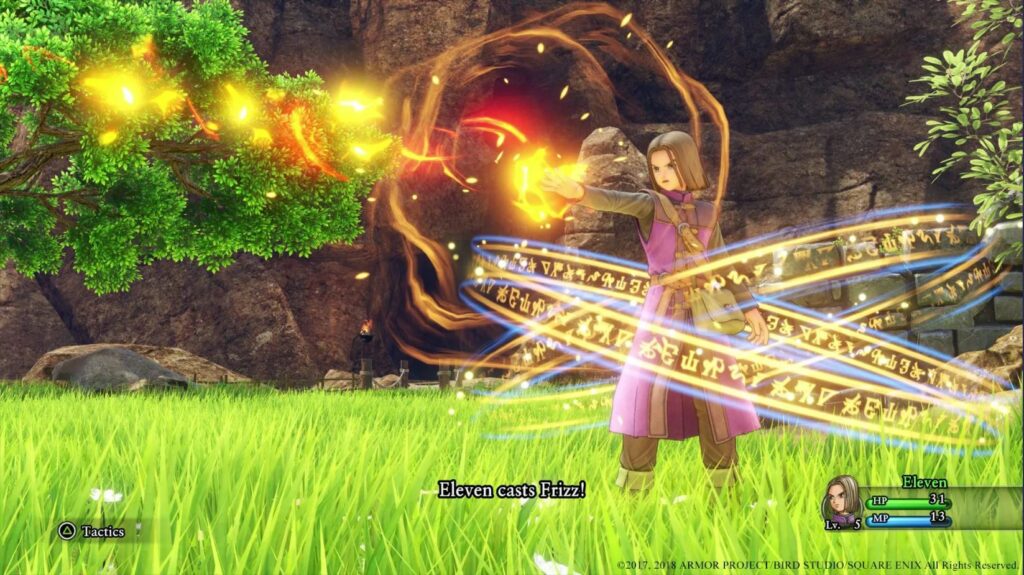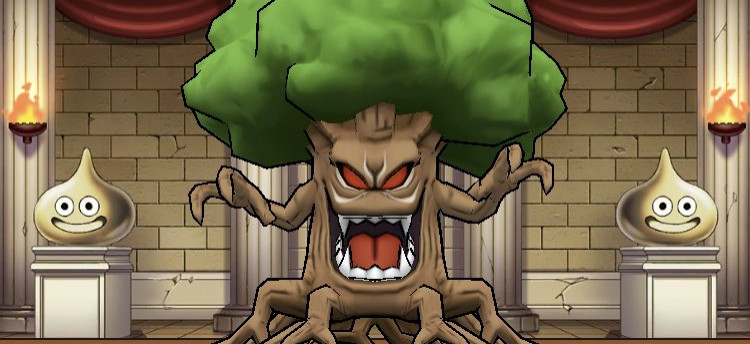In the previous Dragon Quest blog, we looked at some of the accents in the series and their relationship to character development and storylines. Continuing the Dragon Quest theme, I would like to share some of the finer challenges the localization team encountered and the interesting solutions they took to overcome these obstacles. Given the game was originally written in Japanese, you can imagine there were many examples to choose from!

Onscreen Character Limitation
Localizers could only use a maximum of 18 characters for weapon and spell descriptions. This was because of screen sizes and not wanting to overload gamers with tons of reading.
Take for example the literal translation ‘weapon that puts enemies to sleep’ (originally written as 敵を眠らせる武器 – teku o nemuraseru buki). How would you render this in English with only 18 characters? You see, in Japanese, one ‘kanji’ symbol can represent an entire English noun, so Japanese kanji essentially gets more bang for its buck than one English character/letter. This meant that English versions usually had to be condensed in some way, which is not easy when you think that localizers also needed to convey the same meaning and replicate (or replace) the humor of the Japanese version. For this example, they chose ‘a tiring weapon’.

Word Expansion
In the Japanese version, there was usually a ‘root spell’ that characters would learn early in the game that could later be replaced with more powerful spells from the same spell family. In Japanese, spell names often followed an agglutinative pattern, where each new spell name would expand upon the original root spell name – the localization team aimed to mimic this style. For example, take a look at the ‘mera’ spell family and its translations:
- Mera – Frizz
- Merami – Frizzle
- Merazoma – Kafrizz
- Meragaiā – Kafrizzle
Initially, ‘merazoma’ was translated as ‘kafrizzle’. But when ‘meragaiā’ was later introduced to the series, localizers were met with a problem as they could no longer expand upon ‘kafrizzle’. Consequently, ‘merazoma’ was changed to ‘kafrizz’, while ‘kafrizzle’ would be bumped to the end to represent the most advanced spell, ‘meragaiã’.
This strategy was used with other spells too. However, it wasn’t always possible, so sometimes the team had to find a workaround:
- Jibaria – Rubblerouser
- Jibarika – Boulderbringer
- Jibariina – Mountainmover
- Jibarumba – Ridgeraiser
Because, from the outset, they couldn’t expand upon ‘rubblerouser’ they instead got creative and employed alliteration rather than ‘expansion’. The ‘ridgeraiser’ translation was my favorite as it’s a nod to the Ridge Racer games – another cracking series!

Cultural References as a Challenge
Translators and localizers don’t just deal with linguistic challenges. One problem they are often faced with is dealing with phenomena that may have a deep meaning in the original, source culture, yet be completely unknown to readers in the new target culture. And this was indeed an issue when localizing Dragon Quest – take a look at these two spells:
- Dein – Zap
- Raidein – Zapple
‘Dein’ refers to ‘denki’, the Japanese word for electricity, so the choice of ‘zap’ is quite straightforward. However, the more advanced spell ‘raidein’ refers to the Japanese deity Raijin (God of thunder). It’s possible the localization team believed English-speaking readers wouldn’t understand a translation like ‘raiden’, and thus not connect it thematically to electricity/zap. Alas, sadly, they cut ties with the Japanese God of thunder, again opting for ‘expansion’. Interestingly, Raiden is a prominent Mortal Kombat character – so it’s quite possible gamers would have made the connection!
Similarly, the monster ‘Jinmenju’ – named after a mythical Chinese tree that sprouts human faces – appears in the English versions simply as ‘Treeface’, which isn’t quite as mythical! But, this is the beauty of translation: we all have different ways of dealing with obstacles, and so our creative choices become forms of art. Would you have made the same decisions?

Despite the many complexities, the localization team breathed life into the English-speaking games, giving the games a soul of their own – while not losing touch with their original identity. If you haven’t played the games, I highly recommend you give them a try!



